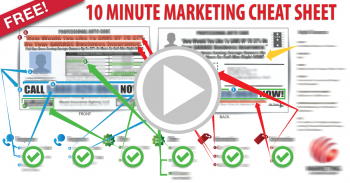- You are here:
- Home »
- Blog »
- Business »
- Charge More—Not Less—Than Your Competitors
Charge More—Not Less—Than Your Competitors
Pricing plays a pivotal role in small business success. Here is a free tip—charge more than your competition.
I can almost feel your anxiety. If you charge more for your products or services, you lose customers, market share—and maybe your shirt. Right? Maybe not. The key is to shift your thinking, and the perspective of your client, away from price as the deciding factor for a purchase.
The premium perspective
Even during the recent economic downturn, luxury items and brands consistently outperformed low-priced goods aimed at the thrifty.
A sharp illustration of this concept is the re-positioning of Apple as a luxury brand. Instead of using its standard release channels for its new device, the Apple Watch, Apple followed the lead of luxury brands, inviting customers to preview the device by appointment. The base model starts at $350. Go for the gold version and pay upwards of $10,000.
Apple has always positioned itself as offering high value. While Apple will initially sell fewer units of its watch—they are priced to return a higher profit.
The cost of doing business
Instead of considering cost structure, many entrepreneurs look at what competitors charge to determine their own pricing. Here are a couple of reasons why that is a bad idea:
- While learning what your competitor charges is important, you have no idea what their selling price is actually costing them.
- It is certain there are competitors able and willing to undercut your selling price.
- If you sell the least expensive widgets on the market, you need to sell a lot of widgets.
- Why battle competitors to earn less?
Price wars keep small business owners from turning a decent profit or building enough positive cash flow to offer better services. Along the way, the time and money needed to create a thoughtful marketing approach never materializes. In any business, rock-bottom prices attract bargain hunters who remain loyal—until they find a better deal.
Refocus on value—start a conversation
An accurate cost structure is essential to price your products or services.
I work with entrepreneurs to understand their real costs. Not surprisingly, most small business people low-ball the worth of their own time. Setting higher prices to respond to your cost structure and the profit you want to make liberates you to provide extra value to your customer.
Because of their size, small businesses can usually out-maneuver bigger competitors by providing customized service and rapidly responding to the real-time needs and problems of their customers. Consider these B2B and B2C marketing points when creating a conversation about value rather than price:
- What is the issue? When you talk to a potential client, or a current customer, ask open-ended questions about their business issues. Take note of how you can leverage your current services to meet their needs, and combine those with ideas, or other resources, to help them resolve their issue.
- Offer expertise: By offering your time in exploring their questions or concerns, you offer expertise instead of a hard sell. Discuss dollars in the context of the scope of their problem—pivoting the discussion away from the cost of your product to the expense caused by the problem. By guiding the customer toward real solutions that may or may not have a payoff for you right now, you make a lasting impression as a trustworthy, reliable, business ally.
- Go the extra three miles: Offering time, education, and expertise to solve a business problem adds value to your services. By building a partner-based, rather than product-based relationship, your customer is likely to buy what you have to offer—repeatedly.
Value is an intangible that has different meanings for consumer and entrepreneur. I know a lot of small business owners that offer tremendous help to customers, but make two critical mistakes:
- Recognition of value: They do not factor their time and expertise into their cost because they do not recognize it as part of their products and services.
- Utilization of value: Since they do not recognize that worth, they miss out on golden opportunities to market and promote their own value.
When you charge more for your service—or your products—you differentiate yourself and your business. When I meet with business owners, we spell out their services and refine their marketing pitch so they can confidently describe the high value they provide to clients.
Here’s the result: you make more money for less work while building a more reliable, stable, customer base.
Unless it suits your business model, do not offer tiered pricing for lower quality services. Charging premium prices for high quality service is fair, and goes a long way to improving your financial bottom line.
When you need a clear conversation about the real cost of doing business and what you can do to see better profit—call me at 585-633-7563.
To your success,
Bob Britton
About the Author Bob Britton
Bob Britton is an accomplished entrepreneur with 25 year’s experience starting, building and growing both brick-and-mortar companies as well as online businesses. He's personally built 3 companies from one man shows to the million dollar mark. Marketing Automation Group and the Automated Entrepreneur Method® are his latest brainchild. After working with hundreds of business owners in every walk of business, he realized there was a HUGE gap in the support and training that was available, and set out to fill that void with his no-nonsense, hype free approach to business growth.




